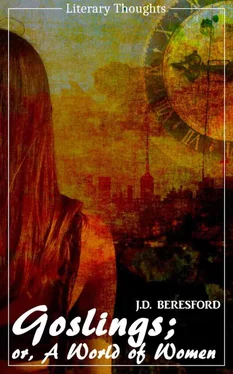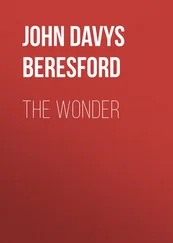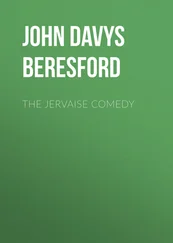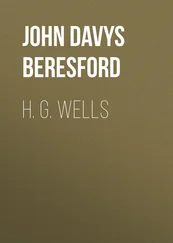The Premier introduced the Bill in a speech which was remarkable for its sincerity and earnestness. He outlined the arrangements that were being made to feed the community, and showed clearly that while communication remained open with America, there was no fear of any serious shortage. Pausing for a moment on this question of intercourse with America, he made a point of the fact that American ports were already closed to emigrants from all European countries with the one exception of Great Britain, and that if a single case of plague were reported in these islands the difficulties of obtaining food-stuffs from America and the Colonies would be enormously increased. He wound up by almost imploring the House not to make a party question of so urgent and necessary a measure at a time when the safety of England was so terribly threatened. He pleaded that at this critical moment, unparalleled in the history of humanity, it was the duty of every man to sink his own personal interests, to be ready to make any sacrifice, for the sake of the community.
Mr Brampton, the leader of the Opposition, then completely destroyed the undoubted effect which had been made upon the House. He did not openly speak in a party spirit, but he hinted very plainly that the Bill under consideration was a mere subterfuge to win votes. He poured contempt upon the fear of the plague, which he characterized throughout as the “Russian epidemic,” and ended with the advice to keep a cool head, to preserve the British spirit of sturdy resistance instead of shutting our doors and bringing the country to commercial ruin. “Are we all cravens,” he concluded, “scurrying like rabbits to our burrows at the first hint of alarm?”
The further debate, although lengthy, had comparatively little influence; the House divided, and the Government was defeated by a majority of nine.
2
The news was all over the country by ten o’clock that night, and it was noticeable that a large percentage of the younger generation still regarded the danger as “rather a lark.” This threat of the plague held a promise of high adventure; youth can only realize the possibility of death in its relation to others.
“I say, if this bally old plague did come” ... remarked a young man of twenty-two, who was sitting with a friend in the little private bar of the “Dun Taw” Hotel.
His friend drew his feet up on to the rungs of his tall stool and winked at the barmaid.
“Well, go on. What if it did?” remarked that young woman.
The young man considered for a moment and then said: “Those that got left would have a rare old time.”
“It’s the women as’d get left, seems to me,” replied the barmaid, and scored a point.
“I say, surely you don’t come from this part of the world?” was the compliment evoked by her wit.
“Not me!” was the answer, “I’m a Londoner, I am. Only started yesterday, and sha’n’t stay long if to-day’s a fair sample. There ’asn’t been a dozen customers in all day, and they were in such a ’urry to get their tonic and go that I’m sure they couldn’t ’ave told you whether me ’air was black or ches’nut.”
Both men immediately looked at the crown of pretty fair hair which had been so churlishly slighted.
“First thing I noticed about you,” said one.
The other, who had hardly spoken before, took the cigarette out of his mouth and remarked: “You can never get that colour with peroxide.”
The barmaid looked a little suspicious.
“Oh, he means it all right, kid,” put in the younger man quickly. “Dicky’s one of the serious sort. Besides, he’s in that line; travels for a firm of wholesale chemists.”
Dicky nodded gravely. “I could see at once it was natural,” he remarked with the air of an expert.
“Ah! you’re one of them that keeps their eyes open,” returned the barmaid approvingly, and Dicky modestly acknowledged the compliment by saying that his business necessitated close observation.
“Most men are as blind as bats,” continued the barmaid, and the examples she gave from her own experience led to an absorbing conversation, which was presently interrupted by the shriek of the swing door.
The new-comer was a small, fair man with a neatly waxed moustache. He came up to the counter with the air of an habitué, and remarked, “Hallo! where’s Cis? You’re new here, aren’t you?”
The barmaid, recognizing the marks of a regular customer, quietly admitted that this was only her second day at the “Dun Taw.”
“I’ve been away for two months,” explained the fair man, and ordered “Scotch.” He was evidently in the mood for company, for he brought up a stool and, sitting a little way back from the bar, he began to address his three hearers at large.
“Only came back from Europe this evening,” he said, “and glad to be home, I assure you.” He raised his left hand with a gesture intended to convey horror, and drank half his whisky at a gulp.
Dicky turned to give his serious attention to the narrative which was plainly to follow, and somewhat ostentatiously observed the details of the new-comer’s dress. Dicky had a new-found reputation to maintain. His friend looked bored and a little sulky, and tried to continue his conversation with the barmaid, but that young woman, appreciating the difference in value between a casual and a regular customer, passed a broad hint by with a smile and said: “Europe? Just fancy!”
“It’s a place to get out of, I assure you,” said the fair man. “I’ve been over there for two months—Germany and Austria chiefly—but for the last fortnight I’ve been wasting my time. There’s nothing doing.”
“Isn’t there?” commented Dicky with great seriousness.
“Oh, we’re sick to death of this bally plague,” put in the other young man quickly. “There’s been simply nothing else in the papers for the last I don’t know how long. I want to forget it.”
The fair man reached forward and put down his empty glass on the bar counter. “Same again, Miss,” he said, and then: “We’ll all be more sick of the plague before we’ve finished with it. It’s a terror. If I was to tell you a few of the things I’ve seen in the past fortnight, I don’t suppose you’d believe me.”
“That’s all right; I’d believe you quick enough,” returned the young man. “Point is, what’s the good of getting yourself in a funk about it? Personally I don’t believe it’s coming to England. If it was it would have been here before this. What I say is ...”
His pronouncement of opinion ceased abruptly. The fair man’s behaviour riveted attention. He was gazing past the barmaid at the orderly rows of shining glasses and various shaped bottles behind her. His mouth was open. He gazed intensely, horribly.
The barmaid backed nervously and looked over her shoulder. The two young men hastily rose and pushed back their stools. The same thought was in all their minds. This neat, fair man was on the verge of delirium tremens.
In a moment the air of intercourse and joviality that had pervaded the little room was dissipated; in place of it had come shocked surprise and fear.
There was an interval of slow desolating silence, and then the convulsive grip of the fair man shattered the glass he held, and the fragments fell tinkling to the floor.
“I say, what’s up?” stammered the barmaid’s admirer, while the barmaid herself shrank back against the shelves and watched nervously. She had had experience.
The fair man’s head was being pulled slowly backwards by some invisible force. His eyes, staring straight before him, appeared to watch with fierce intensity some point that moved steadily up the wall of shelves behind the counter; up till it reached the ceiling and began to move over the ceiling toward him.
Читать дальше












